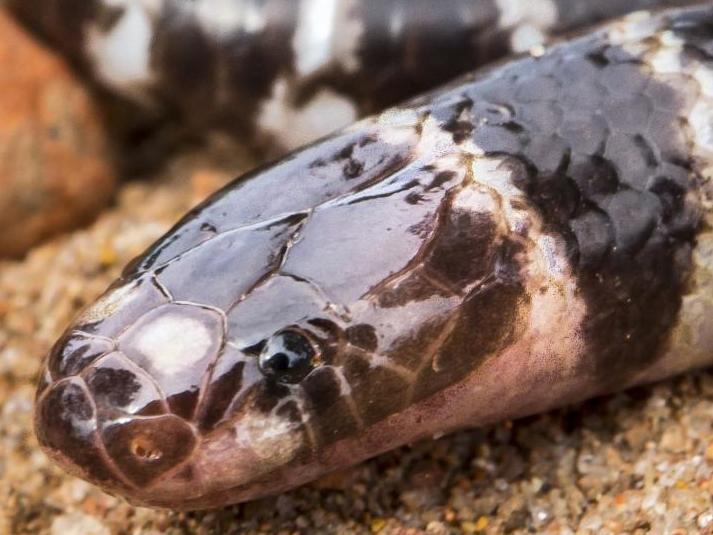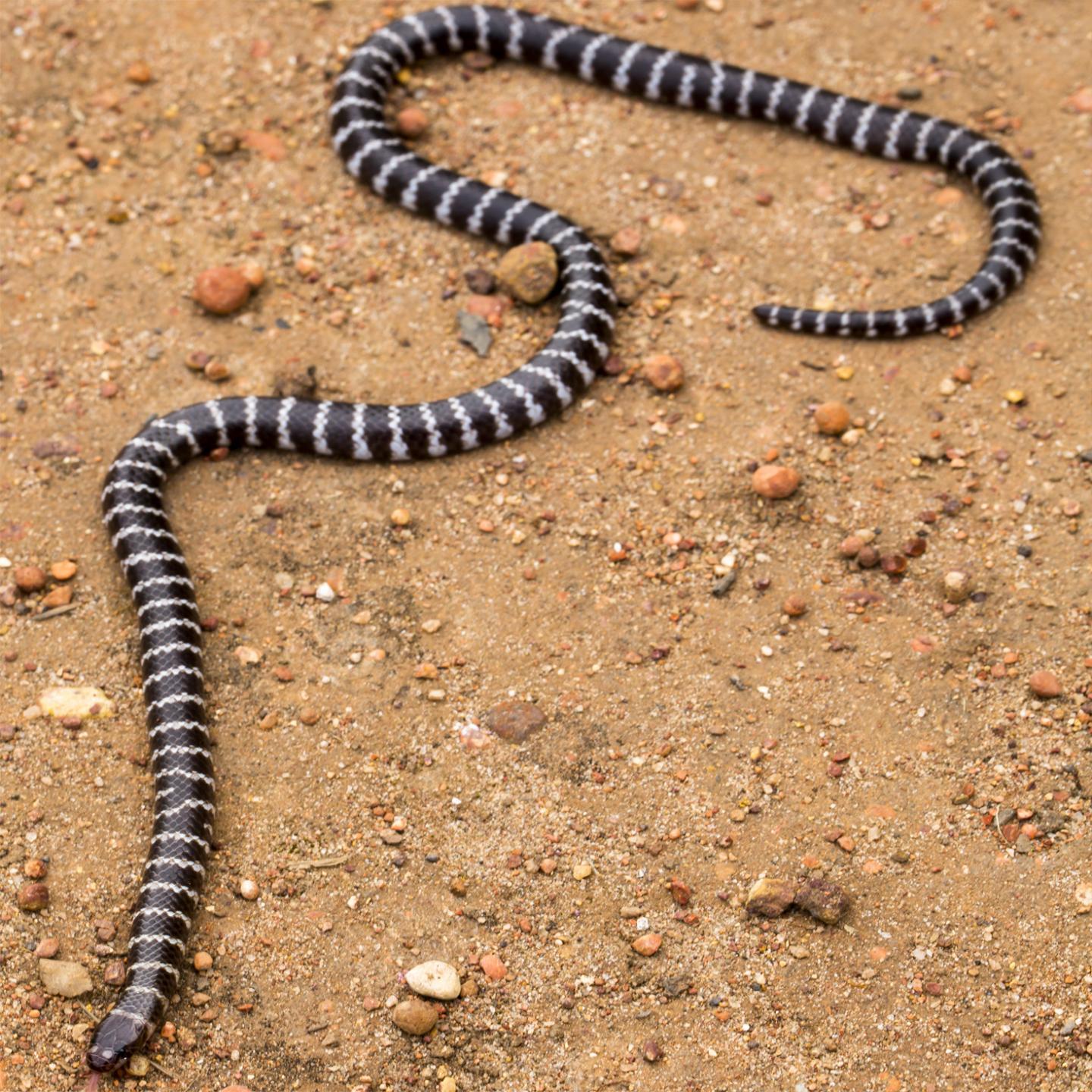Bandy-bandy: Venomous new snake species accidentally discovered by scientists immediately declared at risk of extinction
Scientists say 'enigmatic' species shows 'how little we know about our biodiversity and how much may be lost before we even discover it'

Your support helps us to tell the story
From reproductive rights to climate change to Big Tech, The Independent is on the ground when the story is developing. Whether it's investigating the financials of Elon Musk's pro-Trump PAC or producing our latest documentary, 'The A Word', which shines a light on the American women fighting for reproductive rights, we know how important it is to parse out the facts from the messaging.
At such a critical moment in US history, we need reporters on the ground. Your donation allows us to keep sending journalists to speak to both sides of the story.
The Independent is trusted by Americans across the entire political spectrum. And unlike many other quality news outlets, we choose not to lock Americans out of our reporting and analysis with paywalls. We believe quality journalism should be available to everyone, paid for by those who can afford it.
Your support makes all the difference.Scientists have stumbled upon a previously undiscovered species of venomous snake, but warned it could already be at risk of extinction.
The new subspecies of bandy-bandy, a family of burrowing snakes endemic to Australia, was found by chance by biologists from the University of Queensland, who have quickly applied for it to be given protected status.
The team came across it while researching sea snakes near Weipa, a mining town on the west coast of the state’s Cape York Peninsula, in May.
“Bandy-bandy is a burrowing snake, so Freek Vonk from the Naturalis Museum and I were surprised to find it on a concrete block by the sea,” said Professor Bryan Fry, who was leading the research.
“We later discovered that the snake had slithered over from a pile of bauxite rubble waiting to be loaded onto a ship.
“On examination by my student, Chantelle Derez, the bandy-bandy turned out to be a new species, visually and genetically distinct from those found on the Australian East coast and parts of the interior.”
The team found another specimen in its natural habitat near Weipa and another that had been killed by a car close to a mine. Two more were discovered in museum collections.

Biologists were previously aware of five species of bandy-bandy, also known as the hoop snake, which carry a mild venom, can grow to about a metre in length, and feed almost exclusively on blind snakes.
DNA analysis confirmed the discovery of a new species, which has been formally named Vermicella parscauda.
The Queensland biologists’ study, published in the journal Zootaxa, also established that the species was more closely related to bandy-bandies which live in Western Australia’s tropical forests than those found in the Cape York Peninsula.
But Prof Fry warned the new species may be in danger due to mining of its habitat.
“Bauxite mining is a major economic activity in the region, and it may be reshaping the environment to the detriment of native plants and animals,” he said.
The biologists this week formally applied for the Queensland government’s Department of Environment and Science to declare the snake a threatened species. The status, if granted, would mean mining companies are required to consider the welfare of the species and avoid destroying its habitat.
“The importance of such discoveries goes beyond simply documenting what is out there, as venoms are rich sources of compounds that can be used to develop new medications,” said Prof Fry.
“Every species is precious and we need to protect them all, since we can’t predict where the next wonder-drug will come from.
“The discovery of this enigmatic little snake is symptomatic of the much more fundamental problem of how little we know about our biodiversity and how much may be lost before we even discover it.”
Join our commenting forum
Join thought-provoking conversations, follow other Independent readers and see their replies
Comments